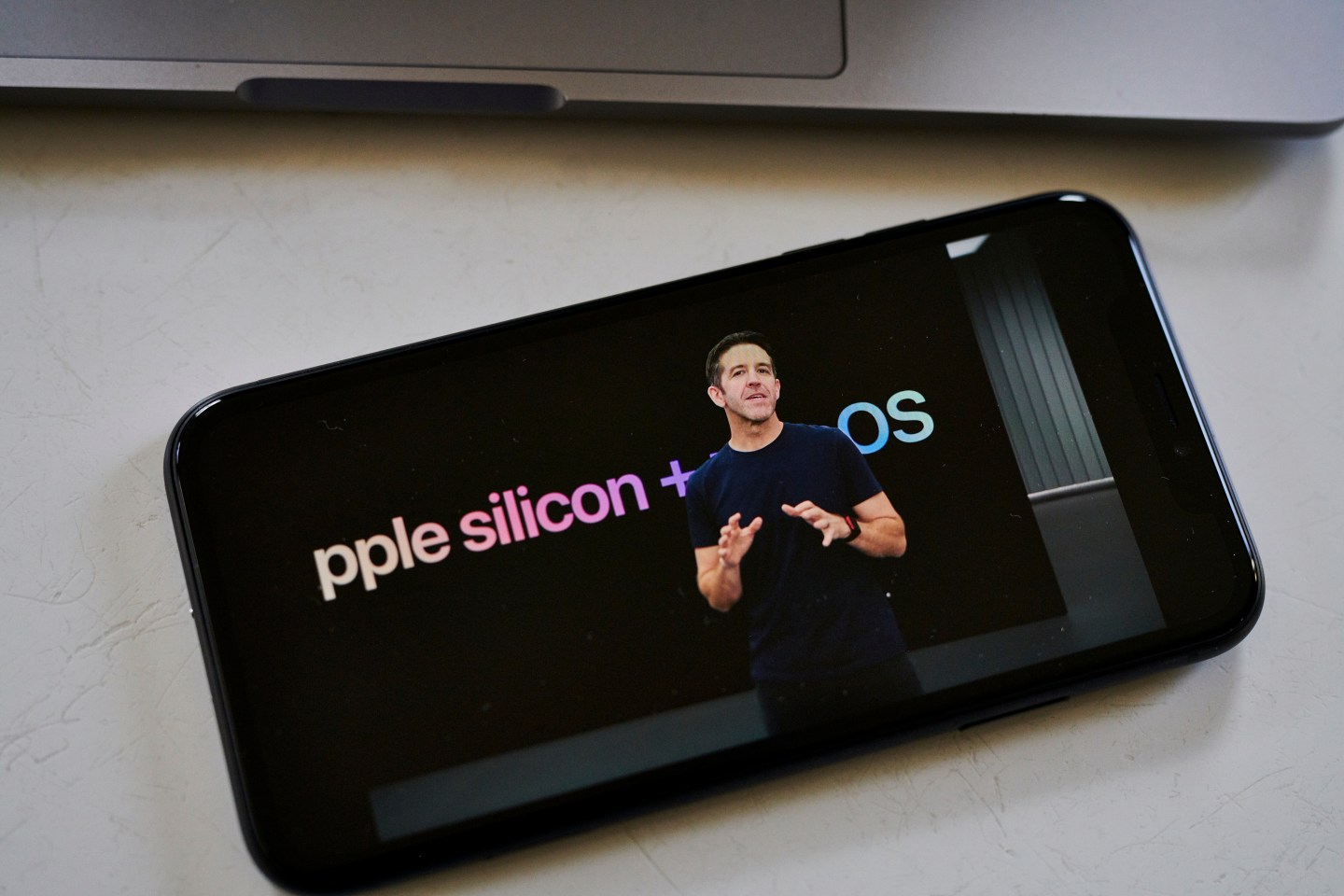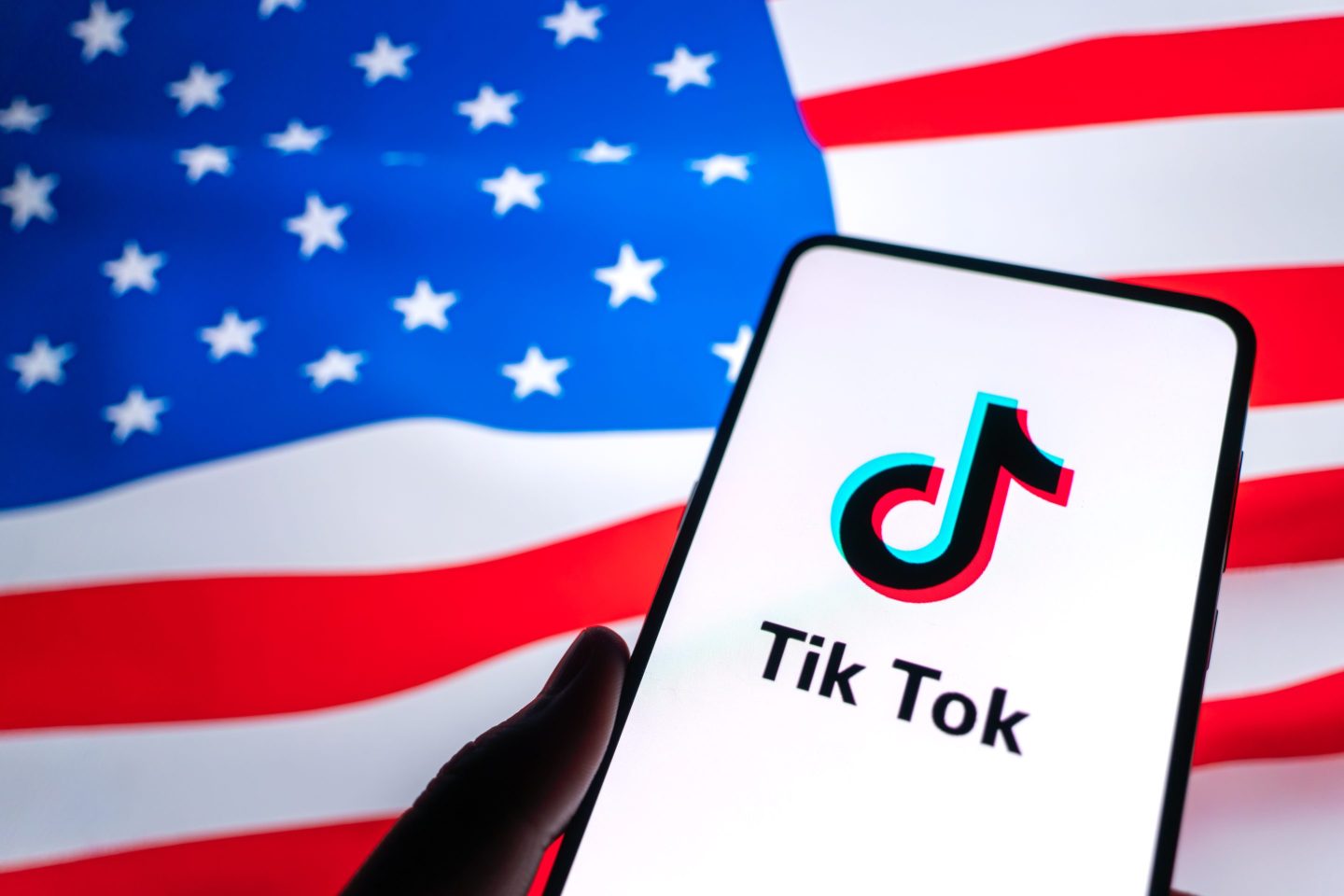Good morning. If it feels like the tech industry has taken a deep breath (and is holding it), you’re not imagining things.
Tech companies are quietly cutting jobs. This year Amazon, Google, Microsoft, Meta, and Tesla have reduced their workforces for various reasons. Ditto Cisco, Dell, HP, IBM, Intel (duh), Oracle, and Salesforce.
The chief executive optimist says it’s because AI is helping automate processes. The pessimist says it’s because we’re heading into a recession. Whatever the reason, no one wants to be over their skis.
Out in Silicon Valley? Moonshots. In? Roofshots.
Today’s tech news below. —Andrew Nusca
Want to send thoughts or suggestions to Fortune Tech? Drop a line here.
Is John Ternus the heir apparent at Apple?

With Apple CEO Tim Cook turning the big 6-5 next month—and many of his top lieutenants not far behind him—the rumor mill is spinning as to who might eventually replace him at the $4 trillion U.S. tech giant.
According to Bloomberg’s Mark Gurman, Apple is “intensifying the spotlight” on hardware chief John Ternus as Apple’s next top exec.
We’re already starting to see changes. Cook’s No. 2, COO Jeff Williams, will exit this year. Hardware chief Johny Srouji and sustainability chief Lisa Jackson are weighing retirement, per Gurman. AI chief John Giannandrea has arrows in his back from the company’s troubled Apple Intelligence rollouts. All are in their 60s.
At 50, Ternus—a 24-year veteran of the company—has some runway to operate if he were handed Apple’s top job. And his product engineering background may be desirable at a time when Apple could use a hit.
Not that Cook plans to shuffle off into the sunset anytime soon. As he said in an interview earlier this year: “I don’t see being at home doing nothing and not [being] intellectually stimulated.” —AN
The AI boom is creating a memory shortage
As with most electronic things, the cost of computer memory and storage has dramatically declined over time.
Last year’s purchase? Half the price today. And it’ll happen again next year.
Except it might not. Suppliers and analysts reportedly believe that the tremendous buildout of AI data centers is driving us toward major shortages of both memory (DRAM) and storage (NAND, a.k.a. flash).
As Tom’s Hardware writes: “Every memory cycle has a trigger, or a series of triggers. In past years, it was the arrival of smartphones, then solid-state notebooks, then cloud storage. This time, the main driver of demand is AI.”
Turns out GPUs and electricity weren’t the only limitations on an AI boom.
Hyperscalers are well aware. The recent Samsung-SK Hynix-OpenAI agreement to supply up to 900,000 DRAM wafers per month to the Stargate project accounts for nearly 40% of global output of the stuff, Tom’s notes.
Future flash arrays, it seems, are harder to book than a Friday night table at 7 Adams in San Francisco.
When will we see relief? Based on previous boom-bust memory and storage cycles, it could take years. Strap in. —AN
North Korean IT agents have scammed businesses out of millions
If you’ve been reading this newsletter for awhile, you’ll know that thousands of North Korean IT workers have for years been stealing identities, falsifying résumés, and deceiving their way into highly paid remote tech jobs in the U.S. and other wealthy countries.
The operation has targeted hundreds of Fortune 500 businesses, aerospace manufacturers, and U.S. financial institutions ranging from banks to tiny crypto startups, according to the FBI.
Is it working? Yes. According to a new Fortune report, the scam has pried open a gusher of cash for Kim Jong-un’s government, which confiscates most of the IT workers’ salaries.
The program has funneled anywhere from hundreds of millions to $1 billion to the authoritarian regime in the past five years, according to FBI estimates.
Both sides are getting smarter about the situation, but it continues to evolve. The latest wrinkle? The North Korean IT workers are subcontracting out more labor to developers based in India and Pakistan in an attempt to conceal their true identities.
Beneath the sprawling scheme lies an uncomfortable truth: The modern economy prizes efficiency, productivity, and results. And North Korean IT workers are leaning in on those tenets. —Amanda Gerut
More tech
—Trouble in Ive x Altman land. Reported technical issues with OpenAI’s planned personal device that may lead to launch delays.
—Clash over subsea cables. U.S. Big Tech uses more than 70% of their capacity, much to China’s chagrin.
—European startups chase U.S. investment. American VCs have invested some $14.2 billion in European AI startups so far this year.
—Peak social media was in 2022. Time spent globally three years ago, per GWI, has since steadily declined…except in North America.
—Robinhood guns for the U.K. Product launches aplenty as the low-cost U.S. fintech firm takes on Hargreaves Lansdown and AJ Bell.
—Boys just wanna game. Young males have doubled their average time per week spent playing video games, according to a large U.S. survey.
—The road to California’s landmark AI law included input from top investor Ron Conway as well as Amazon, Anthropic, Google, Meta, and OpenAI.












